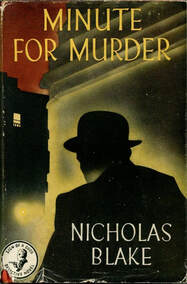
Knowing that the 16 detective novels featuring Nigel Strangeways were penned by British poet laureate Cecil Day-Lewis as a way to generate income, I’m always more surprised than I should be that the author crafted his mysteries with such careful attention to detail and fair-play vigor. His best puzzle plots are as devious and deliberate as anything Agatha Christie would create, filled with notably individual and occasionally sensational crime scenarios and employing a cast of characters built to keep armchair sleuths guessing as the chapters flash by.
In short, the best mysteries published under the name Nicholas Blake play the game as spiritedly and as soundly as anything in Golden Age detective fiction. Day-Lewis wasn’t cynically churning out books within a popular, populist genre just to collect a paycheck; he seems genuinely interested in playing the game, using all his skills and talents to spin his stories and beguile his readers. Minute for Murder, with its intriguing office setting, colorful cast, tactile clues, and active logic intermixed, is an excellent example of the author’s abilities.
We are in the days following the allied victory in Europe, and the Ministry of Morale where Strangeways works will be dissolving soon. He has come to know his wartime colleagues well, and the Visual Propaganda Division is expecting a visit from Charles Kennington, a chatty extrovert who managed to ensnare a top Nazi official while fighting abroad. Charles brings a grim souvenir back with him and passes it around at the reunion party: an intact cyanide capsule to be hidden in a spy’s mouth and used in case of capture. Cups of coffee are passed around, and beautiful secretary Nita Prince chokes and dies after a fateful sip. The capsule can’t be found after a search, and Nigel worries that the young woman’s death may only be the beginning of a dangerous crime spree.
He is soon proven right: another office worker is stabbed while working late and a deliberate blaze destroys a photograph room containing negatives of thousands of classified pictures. As the criminal acts multiply, Strangeways must find answers to several key questions. Was the secretary the intended victim or was the poison meant for another person at the party? Was the fire meant to destroy incriminating evidence, and if so, what? And how to untangle the relationships of people connected to Nita Prince: the pretty secretary was having an affair with department director Jimmy Lake, yet the man is married to Alice Kennington, Charles’s sister. Ministry copy writer Brian Ingle was also in love with Nita, but he knew that she would never break with Jimmy, even if Jimmy could ultimately never leave Alice for her...
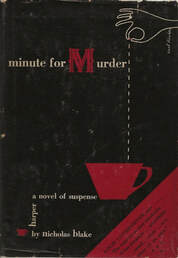
The winnowing of viable suspects from many to few to one, a trait mentioned at the top, still occurs, even if it’s not quite as geometrically ordered as I remembered it. This is also one of the best middle-period Blake books, of kindred spirit with End of Chapter (1957) and The Widow’s Cruise (1959), later entries that show the author’s ongoing interest in crafting engaging and viable fair-play puzzle stories. Among frequent readers and reviewers of classic mystery fiction, Minute for Murder has a reputation as a very good, if not stellar, series entry. I think it still satisfies and plays the game with admirable success.
Additional reviews can be found from Tracy at Bitter Tea and Mystery and Nick at The Grandest Game in the World.
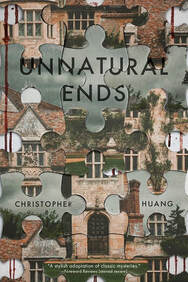


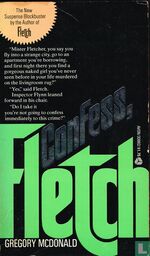
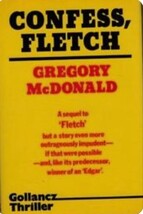
 RSS Feed
RSS Feed